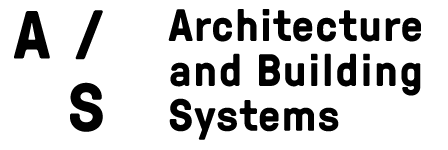Integrated approach and novel tools
We offer lectures, seminars, project work and a studio “Design for Climate” at the Bachelor and Master levels in Architecture (DARCH) as well as the Master’s program of Integrated Building Systems (MIBS), at ETH Zurich. Our goal is to build an understanding of how passive and active building systems interact with architectural design, starting with people (What do we need?) and their environment (What are the local potentials?).
Wir bieten Vorlesungen, Seminare, Projektarbeiten und ein Studio “Design for Climate” auf Bachelor- und Masterstufe für den Studiengang Architektur (DARCH) und den Masterstudiengang Integrierte Gebäudesysteme (MIBS) der ETH Zürich an. Unser Ziel ist es, ein Verständnis dafür zu entwickeln, wie passive und aktive Gebäudesysteme mit dem architektonischen Entwurf interagieren, ausgehend von den Menschen (Was brauchen wir?) und ihrer Umgebung (Was sind die lokalen Potenziale?).
Energy and Climate Design 1 & 2
Bachelor students
BASE LEVEL: DARCH and MIBS Lectures
This annual course focuses on physical principles, concepts and methods for the efficient and sustainable heating, cooling and ventilation of buildings. Interactions of energy and climate with architectural and urban design will be investigated.
Building Systems 1 & 2
Master Students
This lecture series provides an overview of concepts and designs of building energy supply and ventilation systems, renewable technologies, thermal comfort, indoor air quality, and integrated systems.

APPLICATION LEVEL
Focus work is carried out in a field of specialization, for example based on a design project. If you are interested, please submit a short outline explaining the extent of your project (subject, goals, methods, deliverables). See previous examples on www.works.arch.ethz.ch
ARCH / Focus Work
MIBS Lecture / Computational Methods of Climate and Energy Design
Computational Methods of Climate and Energy Design addresses passive and active design strategies and methods to design climate responsive buildings. The lecture includes tutorials, applying state-of-the-art digital tools.

We provide supervision for both Bachelor and Master students who are working on their thesis projects. Students can choose from a list of open thesis topics or may also contact a tutor with a thesis proposal of their own.
DARCH / Thesis Project
DARCH / Doctoral Studies
Interested in doctoral studies at our chair? PhD candidates are accepted based on open positions at A/S. With your job application, submit a thesis proposal stating the subject of research, goals, methods and deliverables.
Requirements:
- a Master’s degree from a recognized university
- an excellent academic performance
- a research topic linked to our research interests
- excellent English communication skills
Data-Driven Building Retrofit
“Due to the relatively low construction rate of new buildings in Europe, the energetic performance of the building stock can mainly be improved by retrofitting existing buildings. In order to address shortcomings of current building assessment methods, the thesis proposes a data-driven-retrofit (DDR) approach to derive optimal retrofit measures. The approach uses wireless sensor networks (WSN) for the determination of building characteristics. With the collected data, building models can be calibrated and retrofit measures can be incorporated in these building models, in order to find the optimal combination of retrofit measures.”
— Mario Frei
Selected dissertations
Printed Performance
“Tuning heat and mass transfer characteristics in digitally fabricated porous structures for building applications. This novel, interdisciplinary research aims to create multi-functional building structures to achieve low lifecycle (embodied and operational) carbon emissions of the building stock. The research leverages existing knowledge in building physics, energy transfer mechanisms and digital fabrication techniques. The expected research applications will be building structures/envelopes capable of selective heat-transfer and heat flux transformations. The research will also contribute towards advances in heat- and mass- transfer characteristics of porous structures, scalable post-processing techniques for DFAB components and material-based integrated design.”
— Bharath Seshadri
Robust Building Energy Systems
“For building system design, a lifecycle perspective is required that considers operational and embodied impacts alike. Due to the long lifetime of buildings, it is further important to study the performance of building systems subject to changing conditions such as temperatures, occupant behavior, electricity grid decarbonization, etc. The doctoral thesis investigates methods, models and metrics to identify robustly performing building systems based on environmental and economic aspects. This is done by establishing a scenario-based robustness assessment framework that includes bottom-up dynamic building energy models and top-down models for future boundary conditions. The findings on robustness metrics are expected to support future design decisions.”
